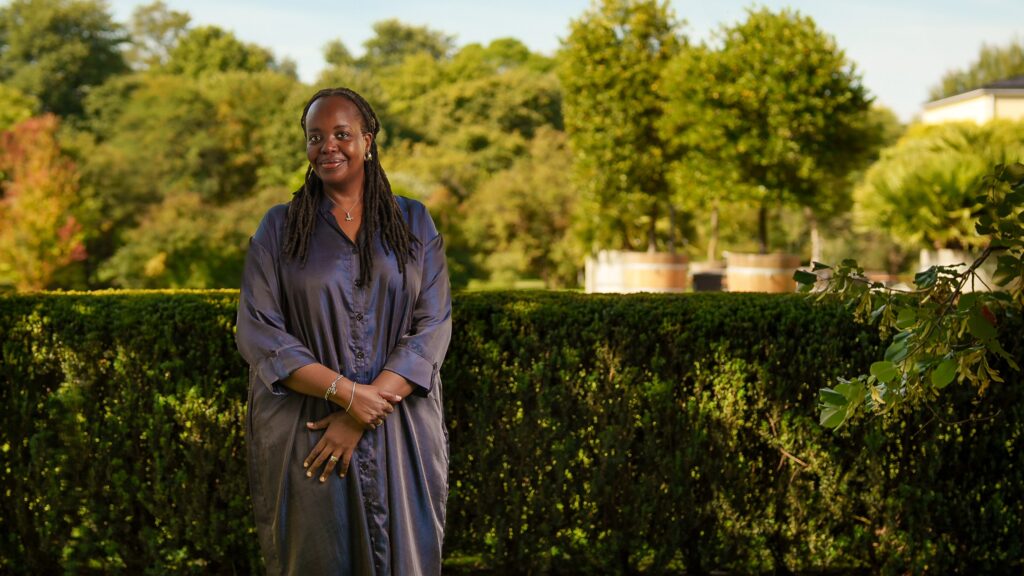
Do Africans truly desire liberal democracy or is it just an imposition of rich, highly-industrialised Western governments?
Opinion by Dr. Angela Muvumba Sellström, Senior Researcher, the Nordic Africa Institute (NAI). The article was first published in Norwegian by Panorama Nyheter.
The answers to this question are as diverse as the African continent, where over 1.5 billion people pursue deeply complicated lives. Most Africans are young, the median age is 19, and the population is growing. Most concerning, from conflicts in the Sahel to the Horn, the African continent is today the theatre of organised armed violence in 28 of its 54 nation-states.
Still, against my quarter century of working on Africa’s peace and security issues, I would bet that the answer is a resounding ‘yes’.
According to the Afrobarometer’s flagship report published in July 2024, Africans favour democratic governance despite being unhappy with many of their governments. Data from 39 countries showed that 66% of Africans surveyed prefer democracy to any other system of government, and most reject one-man rule (80%), one-party rule (78%), and military rule (66%).
Democratisation processes in Africa have been impactful. Africans believe that democracy is the best type of governance system. The work of international actors such as the United Nations (UN), donor countries, and Africa’s democracy and human rights advocates has yielded fruit.
Or did it?
Naïve democratisation and liberal peacebuilding
In the decades after the end of the Cold War, dozens of sub-Saharan African states adopted competitive and pluralist systems of democracy.
Many external actors saw democratisation as a natural evolutionary endpoint. The then UN Secretary-General Boutros Boutros-Ghali wrote in his Agenda for Democratization that “democracy can and should be assimilated by all cultures and traditions.”
Such thinking, as seen from a rear-view mirror, was ill-conceived. Political evolution in Africa and elsewhere has often culminated in the repositioning of authoritarian tendencies. Political liberalisation, too often driven by external pressures, has not yielded much of a democratic dividend for populations in economically underdeveloped, conflict-affected or fragile democracies.
Today, the Varieties of Democracy (V-Dem) data shows that 82% of people in sub-Saharan Africa live in closed or electoral autocracies. Many countries offer some form of legislative participation, civil and political freedoms, checks and balances with different branches of government, and a modicum of regular elections. However, even strong electoral democracies like South Africa and Ghana fall short of safeguarding civil liberties and equality before the law. They aren’t categorised as liberal democracies.
Part of the problem has been a naïve approach to democratisation and peacebuilding. We have assumed that nations and their state institutions can undergo an externally-influenced process of ‘capacity-building’ that will render them into prospering democracies. Linear social engineering of a state from autocracy, war or conflict to peace and liberal democracy, does not exist. In fact, democratisation is a long process that took Western countries centuries and is still an ongoing process that requires continuous renewal.
Democratisation as the long game
The 2011 World Development Report, Conflict, Security and Development, did a remarkable job of exposing some of our misconceptions. It is a pity that its insights are still not applied systematically.
First, conflict is cyclical and predicated on weak internal governance and external stressors. 90% of the conflicts of the early 2000s occurred in countries where there had already been a civil war. Many African countries, even South Africa, with its historic and progressive constitution, remain vulnerable to conflict recurrence and instability. They need time to develop societal and institutional stamina to solve problems through their own democratic traditions, over time, in the face of crisis and in pursuit of recovery. Despite this, as Séverine Autesserre points out, international peacebuilding efforts often ignore local perspectives and lack long-term commitment.
Second, how states and people relate has altered. Organised armed violence is both local and global and intertwined with ever-increasing, dynamic movements of people, money and arms. A country that is democratic, if it is in a bad neighbourhood, will be vulnerable in other ways. Tanzania is one example of this in the Bank report. It was estimated to lose 0.7% of its GDP yearly because of neighbouring conflicts. Today, Ghana, which has been able to hold free and fair elections since 1992, is understandably exposed to economic shocks from democratic backsliding in West Africa.
Africans need more than ‘just’ liberal democracy
Democracy theory has advanced many variables for democratic promotion, emergence and survival. Social welfare, economic development and the middle and working classes play roles. Tolerance, trust and a willingness to compromise are important.
Where the Afrobarometer data shows declines in support for democracy, there are signs of increasing levels of corruption, for instance. Six in ten people reported increased corruption levels in the last year. Young Africans aged 18-35 were more likely than their elders to think that democracy was not working. Moreover, they ranked unemployment and the economy as top priorities – and said their leaders were failing on these fronts.
Africans believe in [liberal] democracy. Although, they haven’t had it yet. According to the V-Dem data, only 32 countries in the world are liberal democracies. Just one African country, Seychelles, is in that club.
Moreover, Africans have non-negotiable needs—for healthcare, clean water, education, jobs, climate change mitigation, peace, and security—that, if unmet, will continue to damage trust in their governments. If liberal democracy could deliver these, Africans would be more in favour of it.
So, do Africans want liberal democracy, or not?
My answer: it’s complicated.
About the author
Angela Muvumba Sellström is a senior researcher with expertise in wartime sexual violence prevention, international interventions and mediation, gender, women, peace and security, and the UN Security Council and the role of non-permanent members.
Photo: Nordic Africa Institute

